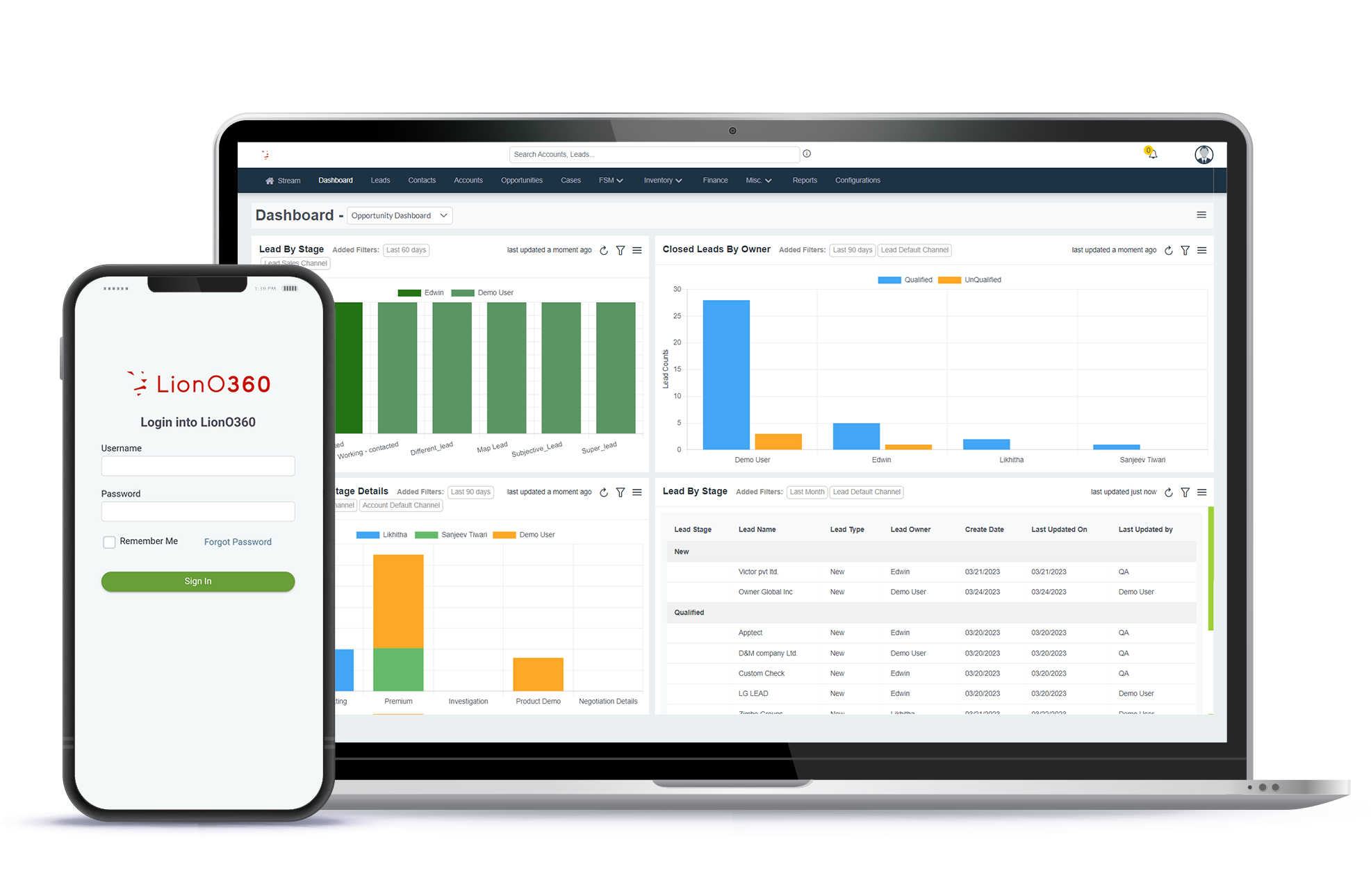
A CRM that is modeled after your business goals can automate repetitive functions, offer insights through data analysis, increase team cooperation and, in the end, strengthen customer relations that are more meaningful and personalized. On the flipside, the wrong CRM can result in wasted investment, low team adoption, and a failure to capitalize on customer data.
In the challenging world of business today, the right CRM for businesses is important for growing your business and building the types of customer relationships which help drive commitment and loyalty. CRM software is a cornerstone for realizing these ambitions, as it can help automate and streamline some of the most crucial functions pertaining to sales, customer support, marketing, and more. Selecting the best CRM for your company involves finding what works for your processes and what features are critical for your specific use case.
What Works: Features That Drive Success
A well-designed CRM can revolutionize how your team interacts with customers, manages sales pipelines, and tracks engagement. Here are some of the standouts features of a successful CRM system:
1. Centralized Data Management
One of the primary reasons businesses adopt CRM systems is to centralize customer data. A good CRM consolidates customer information from various sources—email, social media, customer service interactions, and more—into one easy-to-access location. This provides your sales and support teams with a single source of truth about each customer, making it easier to personalize interactions and resolve issues quickly.
2. Lead and Opportunity Management
Effective lead management is critical for any business looking to scale. A CRM that helps manage leads throughout their lifecycle—from first touchpoint to close—ensures that no opportunity is overlooked. This is especially important in environments where the sales funnel can be complex. Look for CRM systems that allow you to automate lead scoring, track opportunities, and assign tasks based on priorities, so your team can focus on high-potential customers.
3. Automation of Repetitive Tasks
CRM systems that offer workflow automation can save businesses countless hours by automating repetitive tasks such as follow-up emails, meeting reminders, and data entry. This reduces human error and frees up your team’s time to focus on higher-value activities. The best CRMs allow customization of workflows to fit your team’s unique needs.
4. Data-Driven Insights and Analytics
The value of data in business cannot be overstated, and CRM systems are great for capturing and analyzing customer data. Look for a CRM that offers powerful reporting and analytics features, such as sales forecasting, campaign performance tracking, and customer behavior insights. The ability to quickly assess key metrics helps businesses make more informed decisions, refine strategies, and improve customer engagement.
5. Seamless Integration with Existing Tools
Businesses rely on a variety of tools to run their operations—email platforms, accounting software, marketing automation tools, WhatsApp, and more. A CRM that integrates seamlessly with these systems can significantly improve efficiency. Integration allows for the automatic transfer of information across platforms, minimizing data entry and ensuring consistency across departments.
What Doesn’t Work: Common Mistakes to Avoid

While CRM software is powerful, it’s not always smooth sailing. Many businesses face challenges during CRM implementation, especially if they don’t fully understand the system’s capabilities or limitations. Here are some common pitfalls to avoid:
1. Overcomplicating the System
A CRM that’s overly complex or difficult to use can quickly become a burden. Businesses often make the mistake of choosing a system with too many features that their team doesn’t need or won’t use. This can lead to user frustration, low adoption rates, and inefficiency. Simplicity is key—ensure that the CRM you choose is intuitive and that it aligns with the workflows of your team.
2. Failure to Integrate Properly
Even if your CRM offers integration capabilities, poor implementation can lead to integration failures. If the CRM doesn’t sync correctly with your existing software tools (email, marketing automation, or ERP systems), it can create more work than it solves. Poor integration can lead to data silos, duplicate records, and inefficient workflows. Before selecting a CRM, check integration capabilities and ensure smooth connectivity with your tools.
3. Neglecting User Adoption
A CRM system is only as effective as the people who use it. Many businesses overlook the importance of user adoption, assuming that employees will naturally embrace the new system. The reality is that a CRM implementation without sufficient training and support can lead to low engagement and incomplete usage. Onboarding, training, and ongoing support are critical for success.
4. Lack of Customization
Every business is different, and their CRM needs will vary. A one-size-fits-all approach rarely works when it comes to CRM systems. If a CRM doesn’t offer sufficient customization options, it may not fit seamlessly into your business model. For example, being able to customize data fields, reporting dashboards, and workflows ensures that the CRM can be tailored to your specific requirements.
What You Need to Know: Choosing the Right CRM for Your Business
Selecting the right CRM for your business is a significant decision. Here’s what you need to keep in mind to make an informed choice:
1. Understand Your Needs
Before even looking at CRM options, take the time to clearly define what you need from the system. Consider the size of your team, the complexity of your sales process, and the specific challenges you face in customer engagement. Are you focused on sales pipeline management, or do you need a more robust system for handling marketing and customer service as well? Knowing your business requirements is key to narrowing down the best CRM.
2. Prioritize Usability and Training
Ease of use should be a top priority. If the CRM is difficult to navigate, your team will be less likely to use it consistently, undermining its value. Opt for a CRM with an intuitive interface that requires minimal training. Additionally, look for a CRM vendor that provides ample training resources to ensure your team can quickly get up to speed.
3. Customization and Scalability
As your business grows, your CRM needs may change. Choose a CRM that’s not only customizable but also scalable. This means selecting a system that can adapt to your evolving business model and customer engagement strategies. Some CRMs, like LionO360, offer low-code/no-code capabilities, allowing you to modify the system without technical expertise.
4. Cost-Effectiveness and ROI
CRM software can be a significant investment, and it’s important to understand the total cost of ownership (TCO). Consider not just the subscription fees but also implementation costs, training, add-ons, and maintenance. Ensure that the value and benefits your CRM delivers justify the cost. You should also calculate your expected return on investment (ROI), focusing on increased sales, better customer retention, and streamlined processes.
5. Support and Vendor Reputation
Lastly, choose a CRM provider with a strong reputation for customer support and industry expertise. Look for customer reviews, case studies, and testimonials to gauge how responsive the vendor is and how well they support their customers. Opting for a CRM vendor with excellent support will ensure a smooth implementation and ongoing success.
Take Your Business to the Next Level with LionO360 CRM

In contrast to typical CRMs that are aimed at sales and customer information only, LionOBytes India is an entirely integrated platform that integrates CRM, field services management, inventory, order management, and many more – all in a single console system. This single-system strategy guarantees ease of data integration between departments, facilitates team collaboration, and avoids the necessity of multiple standalone applications.
LionO360 CRM is an ideal solution for small to mid-sized businesses in industries such as distribution, retail, field services, and manufacturing. Whether you're expanding operations or need to consolidate fragmented systems, LionO360 conforms to your specific requirements and expands with your business.
Advantages You Can't Ignore
- Efficient workflows that reduce manual labor and redundancies.
- Enhanced customer satisfaction through enhanced service and quicker response times.
- Scalability to keep up with your company's growth without growing beyond your tools.
- Cloud-based access so your team can collaborate from anywhere.
Book your free CRM demo now!
Frequently Asked Questions
What are the key benefits of implementing a CRM system for my business?
Implementing the right CRM system can revolutionize your business operations. It automates repetitive functions, saving time and reducing errors. Additionally, it offers valuable insights through data analysis, enhances team collaboration, and ultimately strengthens customer relationships by enabling more personalized interactions.
How do I choose the right CRM for my company's specific needs?
Start by clearly defining your needs, considering factors like team size, sales process complexity, and customer engagement challenges. Prioritize usability and ensure the CRM is customizable and scalable to grow with your business. It's also crucial to evaluate the total cost of ownership and the vendor's reputation for support.
What are some common mistakes to avoid when implementing a CRM?
Some common pitfalls include overcomplicating the system with unnecessary features, failing to properly integrate the CRM with existing tools, neglecting user adoption and training, and choosing a CRM that lacks sufficient customization options. To avoid these issues, prioritize simplicity, ensure smooth integration with your current software ecosystem, invest in comprehensive training for your team, and select a CRM that can be tailored to your specific business model.
How does a CRM help with customer data management and analysis?
A good CRM centralizes customer data from various sources, creating a single source of truth for your sales and support teams. This consolidated view enables more personalized customer interactions and quicker issue resolution. Furthermore, CRM systems offer powerful analytics features, allowing you to track key metrics, forecast sales, analyze campaign performance, and gain insights into customer behavior.













